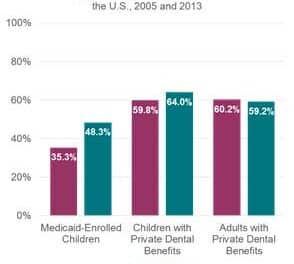While advising practices to review their business insurance policies in case of temporary shutdowns and to plan for supply chain disruptions, the AAO also provides resources related to protecting staff and patients in the event the practice remains open.
The American Association of Orthodontists (AAO) issued recommendations and provided resources for information to help orthodontic practices impacted by coronavirus (COVID-19) whether temporary shutdowns, exposed employees, and purchasing delays due to supply chain problems.
Shutdowns and Business Insurance
The association advises orthodontists to check their business insurance policies. Practices may face temporary closure—due to staff illness and/or civil authorities mandating local businesses close. The financial impact may be mitigated by the practice’s business insurance policy.
Many policies include business interruption coverage—however, policy holders should closely review their business policy to determine the qualifying circumstances. As the association points out, some business interruption policies specifically exclude situations caused by viruses and bacteria; however, in other cases, coverage may extend to situations in which civil authorities have effectively restricted access to the business through shutdowns, regardless of the reason cited by authorities. In other cases, “physical loss” may be a requirement.
If Your Practice Remains Open
The AAO also provided a number of resources to help practices protect patients and staff in the event that the practice remains open.
Infection control and safety expert Jackie Dorst, RDH, BS, will present a webinar on COVID-19 management on March 24 at 7 pm CDT. Titled “Coronavirus Management in the Ortho Practice,” the webinar is free to AAO members and available for 1.25 CE.
Read more: Jackie Dorst recently spoke to Orthodontic Products about how to prepare your practice for COVID-19
Additional guidance from the AAO includes advice to employers with regard to legal concerns when employees may have been exposed to COVID-19 or have tested positive for it via the law firm of Epstein, Becker and Green, which recently posted best practices on their blog. The post covers American with Disabilities Act (ADA) and Family Medical Leave Act (FMLA) protections, how to handle recent staff travel to high-risk areas, wage and hour laws, OSHA requirements, as well as the need for consistent messaging from the employer and communication with the staff.
The AAO also provided a link to OSHA’s “Guidance on Preparing Workplaces for an Influenza Pandemic” and is recommending practices read the section on “How Organizations Can Protect Their Employees.” The section addresses hierarchy of controls for addressing workplace hazards, and discussion of each type of control. In addition, the association recommends the CDC’s “Interim Guidance for Businesses and Employers to Plan and Respond to Coronavirus 2019.” The guide provides information on preparing an infectious disease outbreak response plan and communicating it to employees.
The American Dental Association (ADA) recently published its own handout for dental professionals that includes strategies for preventing the transmission of suspected respiratory disease in the dental health care setting and answers a number of frequently asked questions related to the virus, based on guidelines from the CDC. Clinical guidelines are also available from the ADA. Those guidelines are based on CDC recommendations and go over the use of standard clinical precautions and recommendations for isolating patients with coronavirus symptoms.
Inventory Disruptions
The AAO’s guidance also advises orthodontic practices to anticipate supply disruptions. Noting that purchasing gloves and masks is already a challenge, the association points out that manufacturing slowdowns in Asia could cause supply chain issues for a range of products used in the orthodontic practice.
Staff are advised to do an immediate inventory review and to stock up on key supplies now. Practices can also check with key suppliers to check on product availability during the coming months.
The AAO announced last week that it is monitoring the situation relating to coronavirus, but there were no plan at that point to cancel or postpone the upcoming Annual Session in Atlanta, which is scheduled for May 1 to 4.










